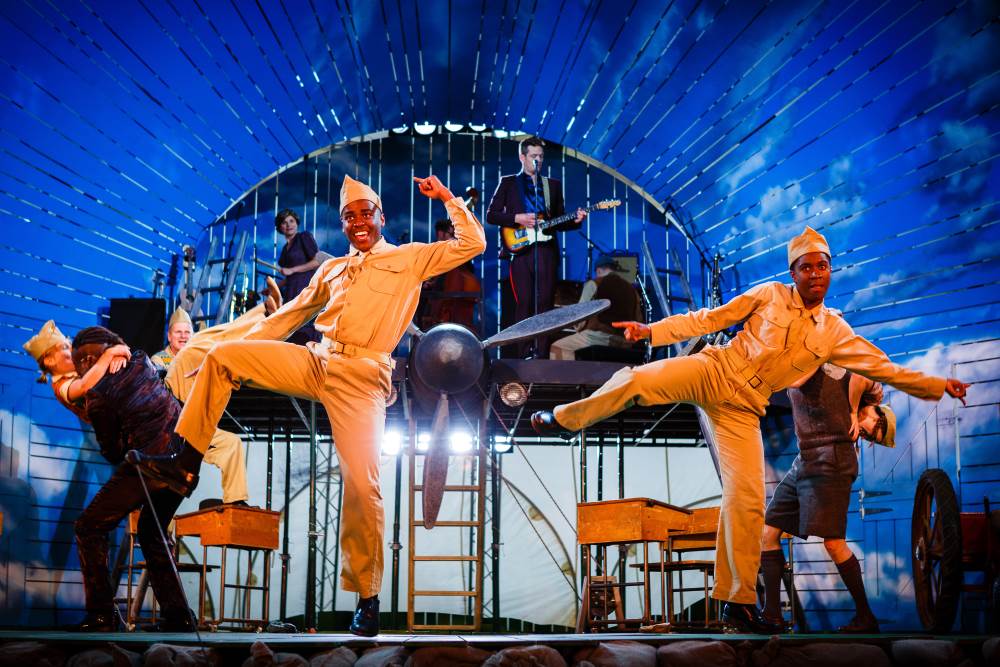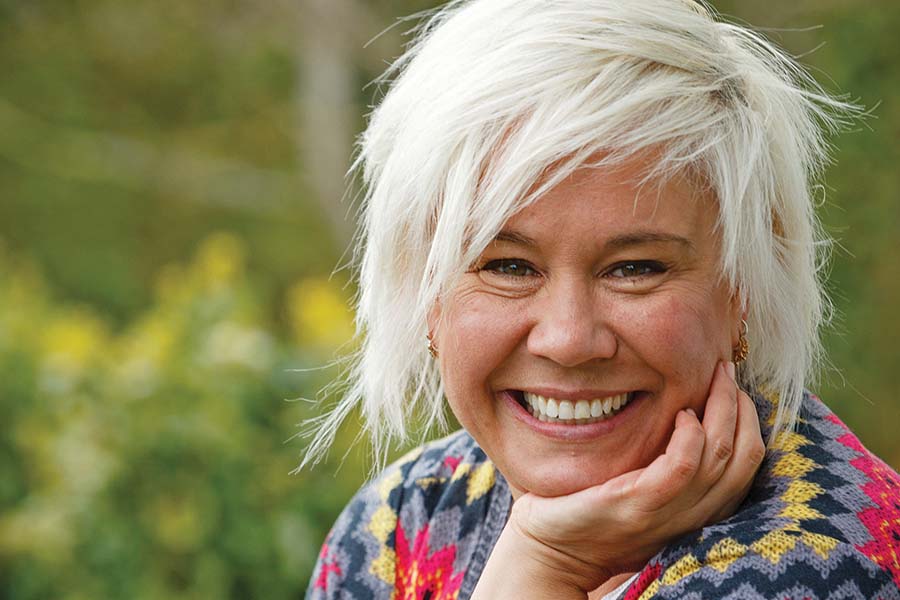Director Emma Rice helped create the international hits Brief Encounter, Tristan & Yseult, and The Red Shoes with the British company Kneehigh Theatre. Their latest, 946: The Amazing Story of Adolphus Tips, comes to California’s Berkeley Repertory Theatre, Dec. 2-Jan. 15.
We spoke to Rice after her first full season as artistic director of Shakespeare’s Globe in London. Due to a dispute that took place after this interview, Rice’s tenure as artistic director will end in 2018, earlier than expected. We reached out to the Globe for a comment and they sent a statement from Rice that read, in part, “I look forward to continuing to explore the possibilities of this extraordinary space over the next 18 months, excited to see even more astonishing work unfolding in the glorious wooden ‘O’ as well as the exquisite Sam Wanamaker Playhouse. My tenure as artistic director has given me the opportunity of forging relationships with the most talented array of directors, actors and Globe staff throughout my 2016 Wonder Season, who I will be sad to say farewell to.”
Below is our interview with Rice prior to that announcement.

What led you to adapt Michael Morpurgo’s novel, about the U.S. occupation of a British village prior to D-Day?
My mum told me about the book. It’s a book written for young people, and I don’t have children of my own, so it wasn’t going to be a book that I’d come across by myself. And I loved it—she was absolutely right. She knows me very well. So much of my work comes through the child’s eye, a lot of my work with folk stories. It’s such a political book, and the heart of it has such a surprising twist that takes us from the modern day back in time and back again. I just thought this would be a great stage show.
World War II is still very present in British life; my grandparents fought in it, and my mum and dad talk about being born and growing up in that time. Because we’re a tiny country that was so nearly invaded, I think it still sits quite near the top of our consciousness. I sort of guess that it won’t be the same for Americans, but you played such a big part that I think it’s a really fascinating lens on that Anglo-American relationship.
The book also prominently features African-American soldiers. Was that a compelling factor for you?
It bubbles gently in the production. We did some research into the American soldiers that came over. They weren’t very popular in England, for lots of reasons. The white American GIs found the British very backwards—that we didn’t have refrigerators and had outdoor toilets. But the black soldiers really did recognize a kinship, and there’s a lot of documentation of very strong relationships built with very poor British people and the African-American soldiers that came to visit.
Kneehigh tends to incorporate music and humor into their work. Will this war story get the same treatment?
We have a saying in England, the “Dunkirk Spirit”: When a group of people feel under attack, they tend to come together. During the war, it strangely was fun; people sang songs together, they danced together. There was a real sense of a community helping each other. At times of adversity, people pull together. I think there are elements of that in the show, and we’ve got lots of signature irreverence from Kneehigh with adults playing kids and everybody playing lots of different parts.
That’s a signature through all my work. You work on both extremes, so you’re absolutely tickling the audience into all sorts of pleasures they’ve forgotten they had—childlike pleasures. But you also really take the work to its absolute most truthful depths. So your audience in turn is crying and laughing.
Your Kneehigh shows tend to feature strong women in lead roles. Is that sensibility you bring to the Globe and to the male-dominated canon there?
The first thing I’m doing is trying to get 50/50 women and men onstage. Shakespeare wrote for very fluid gender because he wrote for all men, so actually the plays are very malleable to shining different lenses on gender. So what I’m doing is getting women in lots of parts that they don’t think that they could have, and it works very nicely. In my Midsummer Night’s Dream, all of the Mechanicals were women, and in Taming of the Shrew, all of the comedy characters were women. Interestingly, with there being no rules, several of us chose to put women in the funny roles, which we so rarely get to do historically. We tend to either be sexy or good, don’t we? It was really nice to put subversion into women’s palette. I think we managed 45 percent of women onstage in the first season.
Any advice for American theatre folks struggling to reach gender parity?
Just do it! You don’t need to agonize about how or why. That’s what we found as a group of directors. We just said, “What if?” And most of us have said, “Oh yeah, that’s great.” It doesn’t need to be a big deal. I think it was Geena Davis who said, “How do you get more women in films? Cross out the cast list and make half the names women.”
What three things would you take to a desert island?
Beer. A parasol. And a cat.
If you weren’t an artist, what would you be?
A hairdresser. I just always liked doing hair; I think it’s nice. You get to touch somebody, chat with somebody—I think it would be a very nice life.
Tell me about your favorite theatre experience.
My favorite theatre experience was taking my production of Cymbeline to Colombia and seeing how real this storyline about boys being abducted and reunited with their father was to people from that different culture. It was very moving and very political.
Any phobias?
Snakes.


